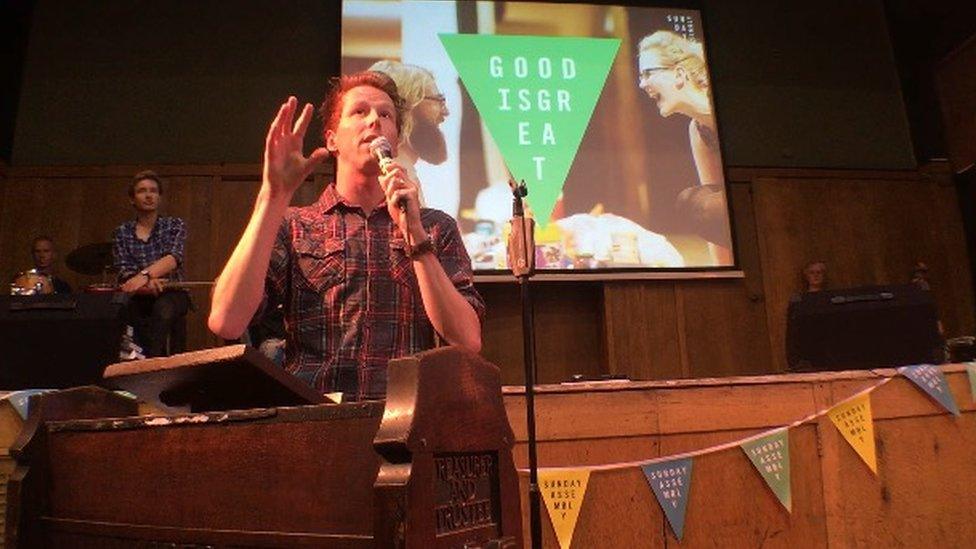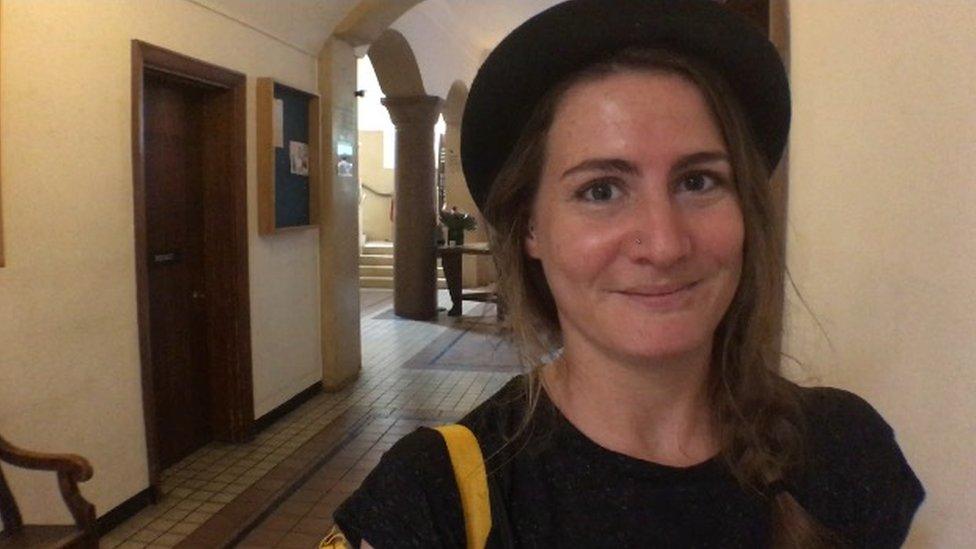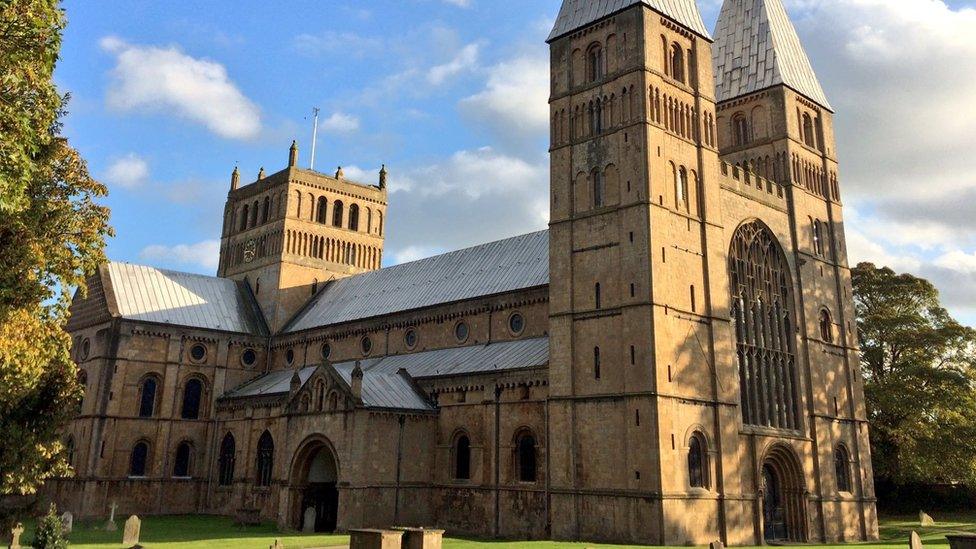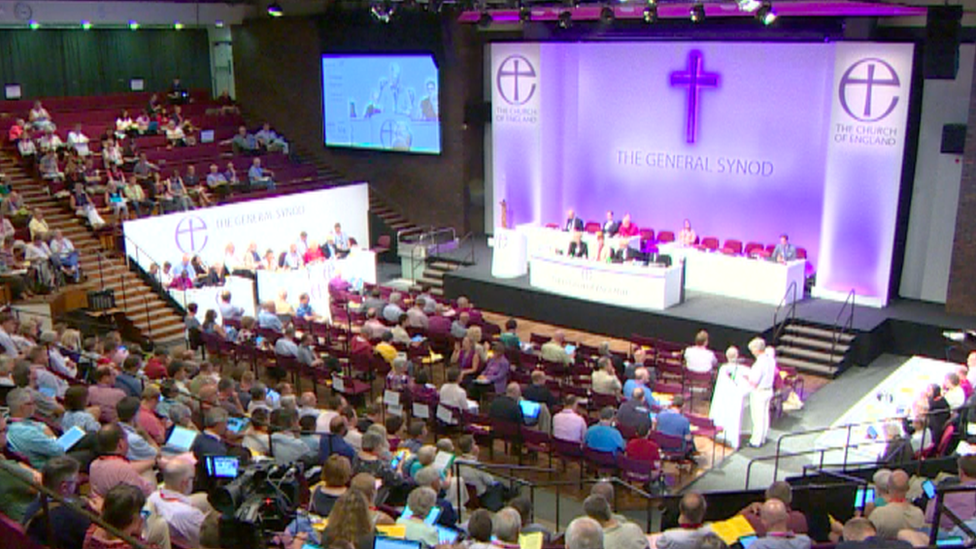More than half in UK are non-religious, suggests survey
- Published

The Sunday Assembly in London describes itself as a secular congregation that celebrates life
For the first time, more than half of people in the UK do not identify as religious, a survey suggests.
Last year 53% of people described themselves as having "no religion", in a survey of 2,942 adults by the National Centre for Social Research.
Among those aged between 18 and 25, the proportion was higher at 71%.
The Bishop of Liverpool said God and the Church "remains relevant" and that saying "no religion was not the same as considered atheism".
The figures, shown to BBC Radio 5 live, reveal a downward trend for religious belief in the UK.
When the national centre's British Social Attitudes survey began in 1983, 31% of respondents said they had no religion.
A random sample of adults were involved in the latest survey and they were asked whether they regarded themselves as belonging to a particular religion.
Almost two in three 25 to 34 year olds said they were non-religious, while 75% of people aged 75 and over said they were religious.

Tamsin is not religious but attends a secular congregation
Tamsin, a 26-year-old travel journalist, goes to the Sunday Assembly, a secular congregation that meets in London every fortnight.
Speaking to 5 live's Rosanna Pound-Woods, she said: "I'm not religious at all. I like the fact that this is a way for community to come together, without having to be about religion."
At times in her life where religion might be important traditionally, like deaths or weddings, she said: "I turn to my friends and just tend to celebrate or commiserate together."
Another member of the congregation, Mitsky, was raised as a Jain - an ancient Indian religion - but now considers himself more atheist.
"Most religions have good basic principles, but certain religions take them maybe in a different direction which I didn't really tend to agree with," the 38-year-old said.
"I was heavily involved in that community here in London and I do miss it, which is why I was looking for something else."
The latest figures show that for people who were born into a religious household, four in 10 are no longer religious.

The most dramatic decline is among those identifying as Anglican
The most dramatic reduction has been amongst those who identify as Anglican.
Some 15% of people in Britain considered themselves Anglican in 2016, half the proportion who said this in 2000, according to the survey.
Those identifying as Catholic has remained stable - at around one in 10 - over the past 30 years, while one in 20 people identify with non-Christian religions.
Roger Harding, from the National Centre for Social Research, said the figures should cause "all religious leaders to pause for thought".
"With falling numbers, some faith leaders might wonder whether they should be doing more to take their congregation's lead on adapting to how society is changing," he added.
'Continuing challenge'
The Bishop of Liverpool, the Rt Rev Paul Bayes, said the figures bring a "continuing challenge to the churches" in "a sceptical and plural world".
But he said people's hearts and minds remained "open".
"Saying 'no religion' is not the same as a considered atheism. People see the point of faith when they see the difference faith makes," he said.
"We need to keep finding ways to show and tell those who say they have 'no religion' that faith - faith in the God who loves them still - can make that life-transforming difference for them and for the world."
But the charity, Humanists UK, said the figures raise fresh questions about the place of churches in the running of state schools and their other state-funded privileges.
The charity's chief executive, Andrew Copson, said: "More generally, how can the Church of England remain in any meaningful sense the national legally established church, when it caters for such a small portion of the population?"
- Published9 July 2017
